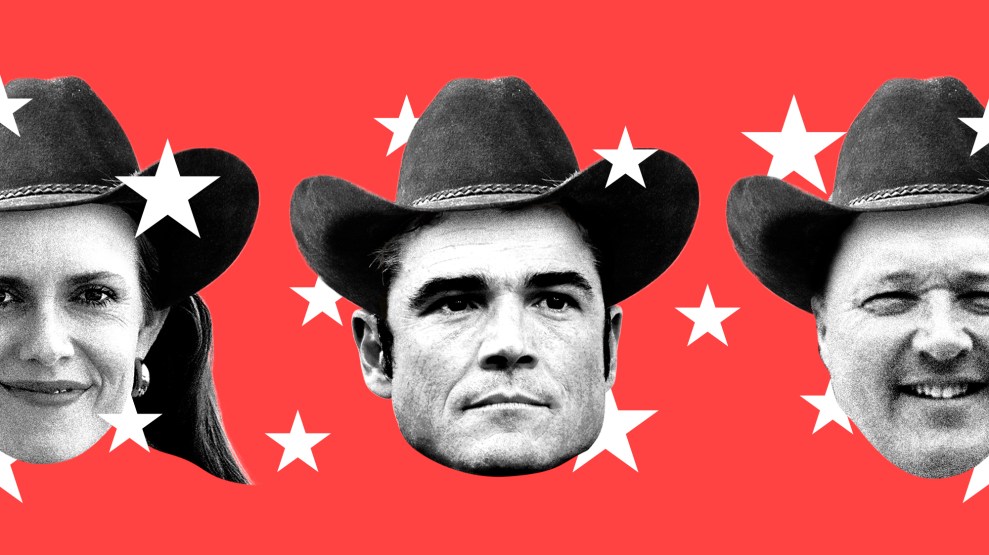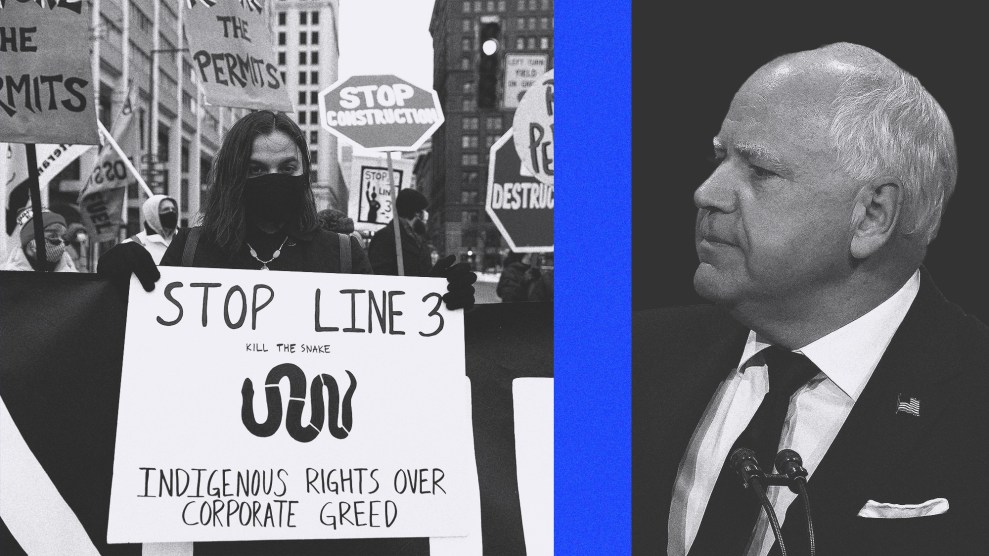It’s time to put to rest a lingering myth that, all evidence to the contrary, just won’t die. On the Senate floor this morning, Senate Minority Leader Mitch McConnell (R-Ky.) repeated, for the umpteenth time among Republicans and conservatives, a pernicious misconception that places most, if not all, of the blame for the financial crisis on the government-sponsored housing corporations, Fannie Mae and Freddie Mac:
“[The financial reform bill] does nothing—nothing—as I indicated, to rein in Fannie Mae and Freddie Mac, the main protagonists in the financial meltdown. This is absolutely worse than irresponsible; it’s the legislative equivalent of wrongful conviction.”
Not only is McConnell’s basic grasp of storytelling wrong—if Fannie and Freddie are to blame, shouldn’t they be the antagonists?—but his understanding of what caused the financial crisis is deeply flawed. Sadly, this misconception is a longstanding meme among Republicans and conservatives. In 2008, then-Republican presidential candidate John McCain said Fannie and Freddie were “the catalyst for this housing crisis” and thus the spark that ignited the broader economic meltdown. House Majority Leader John Boehner has said, “How you can attempt to fix [the financial system] without going to the root of the problem, Fannie Mae and Freddie Mac, is really beyond me.” And a roster of conservative pundits has played the Fannie-Freddie blame game so many times it’s hard to keep track.
But a look at the actual data shows that Fannie and Freddie—while certainly plagued with problems—are not the root causes of the subprime mortgage meltdown nor the financial collapse. First, context: Fannie and Freddie’s roles, in part, consisted of buying up lots of mortgages in the secondary mortgage markets, i.e., taking them off the books of mortgage originators, and allowing those originators to extend more credit to potential homeowners. Over time, the two GSEs’ positions as secondary purchasers of mortgages was used to try to expand homeownership to groups of Americans that traditionally didn’t have access to this kind of credit—namely, low-income citizens.
Now to Barry Ritholtz. An financial expert and wildly popular blogger, Ritholtz has written time and time again about the lunacy of blaming Fannie and Freddie. He’s so sure of his position that he’s offered $100,000 to anyone who can prove him wrong. Here’s Ritholtz debunking the Fannie and Freddie meme:
- The origination of subprime loans came primarily from non-bank lenders not covered by the [Community Reinvestment Act, a law pushing the two GSEs to purchase more loans in the secondary markets and thus expand access to housing loans to low-income neighborhoods];
- The majority of the underwriting, at least for the first few years of the boom, were by these same non-bank lenders;
- When the big banks began chasing subprime, it was due to the profit motive, not any mandate from the President (a Republican) or the Congress (Republican controlled) or the GSEs they oversaw;
- Prior to 2005, nearly all of these sub-prime loans were bought by Wall Street—NOT Fannie & Freddie;
- In fact, prior to 2005, the GSEs were not permitted to purchase non-conforming mortgages;
- The change in FNM/FRE conforming mortgage purchases in 2005 was not due to any legislation or marching orders from the President (a Republican) or the the Congress (Republican controlled). It was the profit motive that led them to this action.
That’s Ritholtz’s perspective, which he backs up in more detail in his book, Bailout Nation. Rep. Henry Waxman (D-Calif.), who as then-chair of the House oversight and government reform committee, put it this way in 2008: “It is a myth to say they were the originators of the subprime crisis. Fundamentally, they were following the market, not leading it.”
Here are three economists’ takes:
Paul Krugman, Nobel Prize winner in economics and New York Times columnist: “[W]hile Fannie and Freddie are problematic institutions, they aren’t responsible for the mess we’re in.”
University of Oregon economist and popular blogger Mark Thoma: “[B]est behavior of Fannie and Freddie would not have been enough to stop the bubble from inflating in other parts of the financial sector.”
N. Gregory Mankiw, a former adviser to President George W. Bush: Fannie, Freddie “were only one element” of the financial crisis.
A report (pdf) by the Government Accountability Office, the non-partisan investigatory arm of Congress, supports all these arguments. According to the GAO report, Fannie and Freddie didn’t go wild in the mid-2000s buying up mortgages in the secondary market because of some government mandate, like the 1977 Community Reinvestment Act, to increase homeownership among low-income Americans. On the contrary, “Former [Federal Housing Finance Agency] Director [James] Lockhart stated that the enterprises’ primary motivation in purchasing [Alt-A and subprime mortgage backed] assets was to restore their share of the mortgage market, which declined substantially from 2004 through 2007 as the ‘nontraditional’ (for example, subprime) mortgage market rapidly increased in size. FHFA further stated that the enterprises viewed such mortgage assets as offering attractive risk-adjusted returns.” In other words, they wanted to be bigger players in the mortgage business again, to make money where they thought they could—not because Rep. Barney Frank (D-Mass.) or some other politician told them what to do.
Now, there’s no denying that the current precarious state of Fannie and Freddie is a huge issue. Thanks to the Treasury Department, they’re entitled to unlimited bailout money from taxpayers, which it looks like they’ll need as they continue to bleed billions in cash. They’re a headache, a problem lawmakers need to grapple with sooner rather than later. The House and Senate aren’t going to deal with the twins with their current financial reform bill, so they’ll need to take up the cause soon after.
The Democrats say the twins are too big and complex and troubled to include in this bill; GOPers say the bill is a failure if it doesn’t address the GSEs. I won’t say who’s right or wrong. But, as the above arguments show, the claim that Fannie and Freddie caused the crisis—and should thus be the most urgent targets of reformers—is just not true.














